As other answers mentioned, CLR does support tail call optimization and it seems it was under progressive improvements historically. But supporting it in C# has an open Proposal issue in the git repository for the design of the C# programming language Support tail recursion #2544.
You can find some useful details and info there. For example @jaykrell mentioned
Let me give what I know.
Sometimes tailcall is a performance win-win. It can save CPU. jmp is
cheaper than call/ret It can save stack. Touching less stack makes for
better locality.
Sometimes tailcall is a performance loss, stack win.
The CLR has a complex mechanism in which to pass more parameters to
the callee than the caller recieved. I mean specifically more stack
space for parameters. This is slow. But it conserves stack. It will
only do this with the tail. prefix.
If the caller parameters are
stack-larger than callee parameters, it usually a pretty easy win-win
transform. There might be factors like parameter-position changing
from managed to integer/float, and generating precise StackMaps and
such.
Now, there is another angle, that of algorithms that demand
tailcall elimination, for purposes of being able to process
arbitrarily large data with fixed/small stack. This is not about
performance, but about ability to run at all.
Also let me mention (as extra info), When we are generating a compiled lambda using expression classes in System.Linq.Expressions namespace, there is an argument named 'tailCall' that as explained in its comment it is
A bool that indicates if tail call optimization will be applied when compiling the created expression.
I was not tried it yet, and I am not sure how it can help related to your question, but Probably someone can try it and may be useful in some scenarios:
var myFuncExpression = System.Linq.Expressions.Expression.Lambda<Func< … >>(body: … , tailCall: true, parameters: … );
var myFunc = myFuncExpression.Compile();
